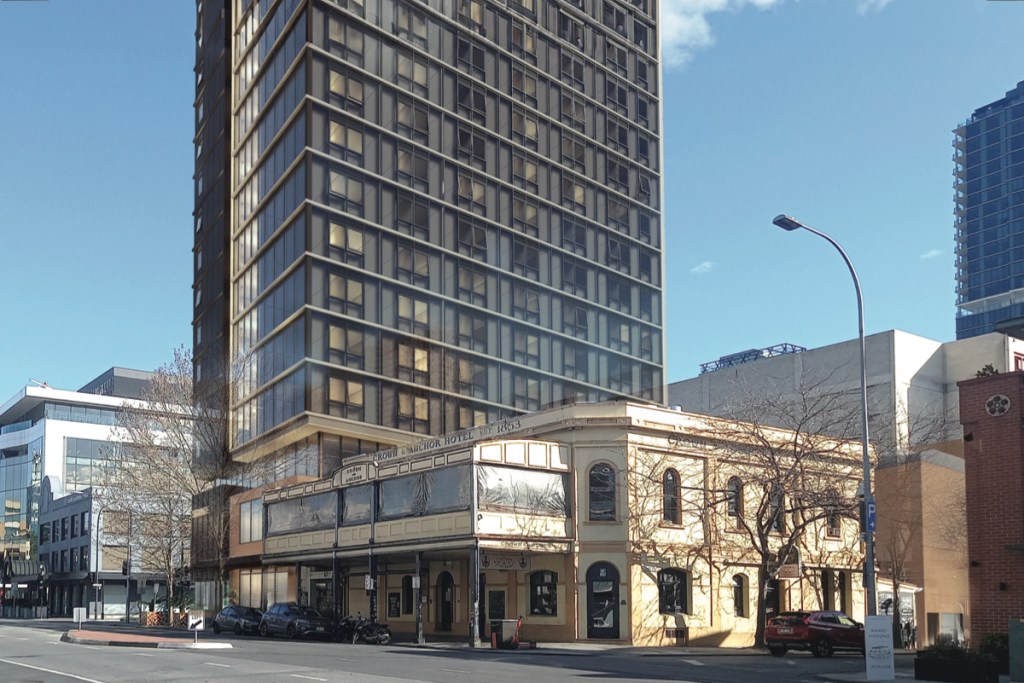RBA will monitor Trump’s trade tariffs for inflation risk, says deputy

- by Admin
- December 11, 2024
The Reserve Bank’s deputy governor has encouraged Australians not to stress too much about the likely impact on Australia’s economy of a tit-for-tat trade war sparked by Donald Trump’s presidency, and the problems it may cause for inflation next year.
Andrew Hauser says if US president-elect Trump introduces wide-ranging trade tariffs next year, the direct impacts on Australia would probably be limited, because our exports to the United States were relatively modest.
He said it was also hard to know with certainty how the tariffs would impact Australia’s economy indirectly, because much would depend on the extent to which Australia’s biggest partner, China, retaliated against any tariffs, and how global supply chains reacted to any abrupt price changes.
Essentially, he said there were too many potential scenarios for Australia, and they remained hypothetical at this stage, so it wasn’t worth losing much sleep over.
“It is too soon to say what the scale and scope of any such tariffs might be,” Mr Hauser said on Wednesday.
“Given this uncertainty, it is important that we don’t prejudge the implications of tariffs for policy but monitor developments closely and stand ready to respond appropriately as the facts emerge.
“That is what we at the RBA will do, factoring that assessment into our overall policy judgements in the months ahead.”
RBA’s next meeting comes weeks after Trump takes office
Mr Hauser made those comments in his speech at the Australian Business Economists’ annual dinner in Sydney on Wednesday.
They come a day after the RBA Board held its final meeting for 2024, where it left the cash rate at 4.35 per cent.
Trump will be sworn in on January 20 and has said he plans to introduce a 10 per cent tariff on all Chinese goods on his first day in office.
The RBA Board won’t be meeting again until February 17 and 18 next year, three weeks into Trump’s presidency.
In its post-meeting statement on Tuesday, the RBA Board said it was “gaining some confidence” that inflationary pressures were declining in Australia, in line with recent forecasts.
It said underlying inflation was still high, but other recent data on economic activity had been softer than expected in November, on balance.
It said growth in output had been weak, wage pressures had eased more than expected, and monetary policy remained restrictive and was working as anticipated.
RBA governor Michele Bullock said the board had deliberately chosen certain language in its post-meeting statement to convey the message that they were aware that economic conditions have softened in Australia, as it tries to bring inflation down.
“It is deliberate, and we wanted — the board wanted — to give the message that they have noticed that some of the data that is a bit softer, some of it’s not, it’s a bit mixed, but some of it is on balance a bit softer than we had expected,” Ms Bullock said.
“We’re not saying what we might do, but we are acknowledging that there is some softening and our forecast is to see inflation coming back down gradually over the next year.
RBA governor Michele Bullock speaks to reporters at a press conference on December 10, 2024. (ABC News: Michael Janda)
“As each quarter goes by, and our forecasts look like they are basically in line … that gives us a little bit more confidence in the future.
“We’re not saying that we won the battle against inflation yet, but we’re saying that we’ve got a bit more confidence that things are evolving as we think in our forecasts,” she said.
Economists said the shift in language from the RBA Board was clearly “dovish” and it raised the prospect that interest rates may be cut as early as February next year, rather than in May, although most still think May is the likelier prospect.
Ms Bullock said the RBA Board still believed inflation in Australia was on track to keep declining during the next 12 months, assuming no more inflationary shocks hit the global economy in that time.
In that vein, Mr Hauser reassured Australians that the RBA will be monitoring events in the US as Donald Trump enters the White House.
“Australian inflation could move in either direction,” Mr Hauser said of the impact of any trade war.
“As with every element of monetary policy setting, we will be alert to developments and ready to respond – in either direction, with force if needed — to deliver our mandate of low and stable inflation with sustained full employment.”
The Latest News
-
December 22, 2024Indian team’s Vice-captain has a wholesome exchange with an Australian sports Team: Share jerseys before Boxing-Day Test
-
December 22, 2024Australian cricket could be burned by missing generation of players
-
December 21, 2024Australian media and India clash during restricted presser
-
December 21, 2024With son, Tiger Woods has shot at lifting first trophy in 5 years – Australian Golf Digest
-
December 21, 2024Aussie cricket could be burned by missing generation


